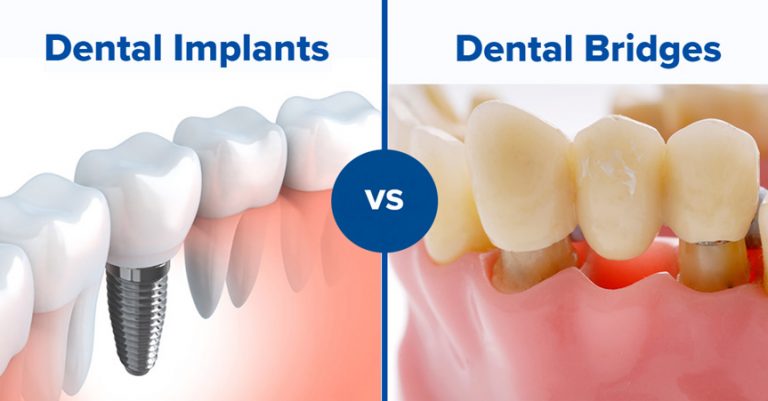In a Nutshell
Dental implants are a durable, long-term investment with higher upfront costs, while partial dentures are budget-friendly but require ongoing expenses. Choose based on your budget, oral health needs, and preference for permanence or affordability.

The availability of dental health solutions, which include dental implants and partial dentures, vary in their functionality. Choosing between these options is generally defined by the price difference between large and small batches. Dental implants are relatively expensive initially, but they are more permanent and give the user the feel of natural teeth. Partial dentures are relatively cheaper than implants but cost quickly because they need to be replaced or adjusted.
Understanding how expensive dental implants are compared to partial denture requires more than a quick glance at initial prices. Implants involve surgical procedures and high-quality materials, contributing to their cost. Partial dentures are less invasive and cheaper initially but may incur long-term expenses. Comparing these options helps clarify the best choice for your oral health and financial situation. Let’s dive into the factors that shape their costs and determine their value.
What Are Dental Implants?
Dental implants are implants made of surgical-grade titanium that can support replacement teeth. They are integrated with the bone and work, and they look like natural teeth, providing a sturdier and more permanent solution for missing teeth.
What Are Partial Dentures?
There are partial dentures and dental prostheses that take care of a few teeth that are missing. Frequently, it includes artificial teeth supported on a base of pink polymer with metal clasps fixed to natural teeth. Inexpensive and minimally invasive, they do a good job of returning a room’s basic functions and looks.
“A penny saved is a penny earned.”
Factors That Affect the Cost of Dental Implants and Partial Dentures
- Dental implants use titanium or zirconia, while partial dentures are made from acrylic, resin, or metal. Higher-quality materials increase costs.
- Multiple implants or larger partial dentures raise the overall expense.
- Implants may require preparatory procedures like bone grafting or sinus lifts, adding to the cost.
- Highly skilled professionals often charge more for their services.
- Dental costs vary by region, with urban areas typically more expensive than rural ones.
- Partial dentures may include features like flexible bases, impacting the price.
- Regular check-ups and maintenance add long-term expenses to both options.
Cost Breakdown of Dental Implants
Dental implants cost about $3000- $5000 an individual tooth covering implant, abutment, and crown. Other costs related to X-rays or a bone graft also may be required. However, implants are relatively expensive in the initial stages of treatment, though they are functional for a long time, require little more care, and are not easily damaged.
Cost Breakdown of Partial Dentures
Depending on materials, partial dentures cost $500 to $1,500 per arch. Basic acrylic is cheaper, while metal-based options cost more. Ongoing expenses for adjustments, replacements, and cleaning solutions make them affordable initially but costlier over time.
Initial Costs vs. Long-Term Investment
How Expensive Are Dental Implants Compared to a Partial Denture? Dental implants are expensive once placed, but they do not wear out easily and hardly require maintenance. This makes them affordable as a long-term investment with less likelihood of maintenance costs. Other benefits include their ability to slow down the decline of bone density, hence fewer calls to a dentist in the future.
Partial dentures are cheaper initially but come with ongoing costs. Frequent adjustments, cleaning solutions, and periodic replacements increase their overall expense. While they provide an affordable temporary fix, the cumulative costs over time can surpass those of implants. Understanding these differences helps determine the most economical choice for your needs.
Which Option Is More Affordable for You?
Deciding on affordability is partly based on your budget and future plans. The implant costs more – $3000-$5000 per tooth; however, this method seems more efficient in the long term. However, they are a relatively low-maintenance material that can last up to three decades if well-maintained. Implants are ideal if you seek a permanent solution and can invest upfront.
Another type of denture is partial, with prices ranging between five hundred to one thousand five hundred dollars. They are more available to those who wish to have a place to get out something quickly and in a short amount of time. Yet, recurring bills can sometimes increase the cost of adjustment, replacement, and maintenance. Finding the cheapest product means considering the short-term and long-term costs and considerations of utility and durability. Dentists, hygienists, or other oral health specialists should be consulted for the most appropriate decision concerning the patient’s wallet and mouth.
Conclusion – Choosing the Right Option for Your Budget
The choice between dentures and implants depends on your budget and dental status. Dental implants are an elegant solution that, while more expensive than others, provides unparalleled service life, functionality, and aesthetics. They are an excellent long-term investment for those seeking a permanent fix.
“You get what you pay for.”
How Expensive Are Dental Implants Compared to a Partial Denture? While more affordable initially, partial dentures require ongoing maintenance and periodic replacements. They suit individuals with tighter budgets or those needing a temporary solution. Carefully consider the lifetime costs, benefits, and your personal preferences. Consulting a dentist ensures you choose the option that aligns with your budget and long-term dental goals.
FAQs
Are dental implants more expensive than partial dentures?
Yes, dental implants have a higher upfront cost but are more durable and require less maintenance over time.
How long do dental implants and partial dentures last?
Dental implants can last a lifetime with proper care, while partial dentures typically need replacement every 5–7 years.
Which option is better for a limited budget?
Partial dentures are more affordable initially, making them ideal for a tight budget, though they come with recurring maintenance costs.

